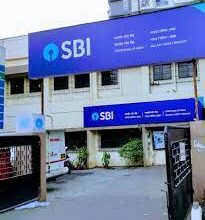In the male-dominated FMCG sector, metro areas have the highest attrition rates, followed by Tier 1, 2 cities: report
In research on India’s Fast-Moving Consumer Goods (FMCG) market, TeamLease Services has unveiled a plethora of revolutionary ideas that have the potential to completely alter the way that the market is seen. It revealed a notable gender gap in the FMCG industry, with over 90% of the outsourced workforce being made up of male employees.

Hyderabad, Delhi, Bangalore, Chennai, Mumbai, and Bangalore are the top five Indian cities with a significant hiring intent in the FMCG industry. The data showed that new hires in-office services, human resources, sales, marketing, and IT, as well as blue-collar jobs, had increased significantly.
Metros Are Best At Attrition
Metros have the greatest attrition rates (27%), followed by Tier 1 and Tier 2 cities (26%), according to the survey. Due to the comparatively lower level of demand in rural markets, attrition rates are lower in Tier 3 and 4 cities compared to urban areas.
The average age of attrited associates is almost 34, while that of active associates is over 36, according to the research. demonstrating the higher attestation tendency of younger workers.
As a result, the tenures of associates who have attrition are 1.1 years and 1.7 years, respectively.
Additionally, attrition was divided into two categories in the report: “regrettable” and “non-regrettable.”
Unfortunately, 21% of departures are attributable to attrition; these are workers whose extraordinary performance led to incentive payouts that were higher than usual for the organization.
Conversely, non-regrettable attrition—which accounts for 39% of attrition—occurs when workers aren’t given any incentives.
Additionally, according to Teamlease Services, southern India has the highest average CTC for both existing and attrition colleagues. Interestingly, there is a large difference in incentives received compared to the little salary difference between active and attrited workers. This suggests that, despite earnings seeming to be rather inelastic, incentives are a much better predictor of attrition.
FMCG Prospects
With extensive government assistance and India on track to become the world’s third-largest economy, the FMCG sector is expected to hit major revenue milestones in the near future.
The PLI program and other government measures, such as FDI permits, are boosting industrial development and export potential. Market penetration is being facilitated by the growth of e-commerce and direct-to-consumer business models, especially in rural regions.
Given India’s growing middle class and young population, it is imperative to continuously innovate and diversify your product line in order to meet changing customer demands and maintain market growth.
Using technology to improve supply chains, make data-driven decisions, and increase operational efficiency is critical in this kind of situation. The survey emphasized that increased digital connection may facilitate collaboration between traditional Kirana shops and pave the way for mutual development and market expansion.
Kirana Stores Are Still Essential
For the foreseeable future, kirana stores—the foundation of retail sales in our nation—will continue to be significant. However, given the noticeable shift in consumer behavior, modern trade and e-commerce—especially quick e-commerce—will advance quickly. These platforms are being used for regular bulk purchases as well as impulsive purchases.
“The report unveils critical insights into the evolving landscape of India’s FMCG sector, offering stakeholders invaluable strategic guidance in navigating opportunities and challenges,” said Kartik Narayan, CEO of Staffing, TeamLease Services. Organizations must embrace agility and foresight to compete in this changing market climate, from using technology and innovation to managing worker dynamics.
“The FMCG sector is poised for robust workforce expansion and talent acquisition,” said Balasubramanian A, vice president and head of business at TeamLease Services. “Top cities like Mumbai, Bangalore, Chennai, Delhi, and Hyderabad are experiencing significant growth in intent to hire.” For industry participants hoping to take advantage of new possibilities and efficiently grow their operations, this trend portends well.
“The gender gap in the FMCG workforce, where male colleagues make up over 90% of the workforce, highlights the need for coordinated efforts to promote gender diversity and inclusivity in the industry,” he said. Accepting diversity shows a dedication to establishing a more equal workplace while also encouraging creativity.
According to the research, efficient data management is essential in the FMCG industry. Businesses own enormous volumes of customer data, which, with skillful analysis, may provide insightful information to spur innovation and improve customer satisfaction.
Additionally, maintaining a favorable brand image is crucial for success on a worldwide scale, which calls for careful navigation of the various regulatory requirements in various areas. Among other difficulties, the research listed the industry’s struggles with heightened rivalry in online shopping, which has led to price wars and rising R&D expenses for significant firms.
In addition, the industry must accommodate a wide range of demographics, including Gen Z, millennials, and Gen X, all of whom have different needs and objectives.
For continued success in this changing market scenario, the research recommended embracing technology, innovation, and strategic alliances while tackling regulatory complexity and customer needs. To successfully handle market uncertainty and capitalize on new possibilities, organizations must prioritize recruiting, reduce attrition, and enhance personnel efficiency.







